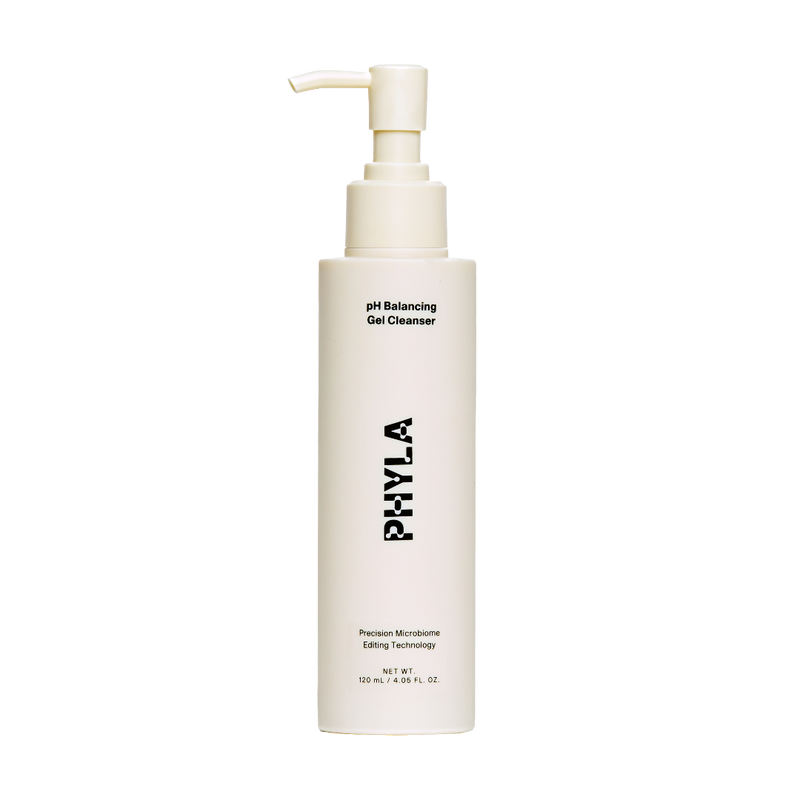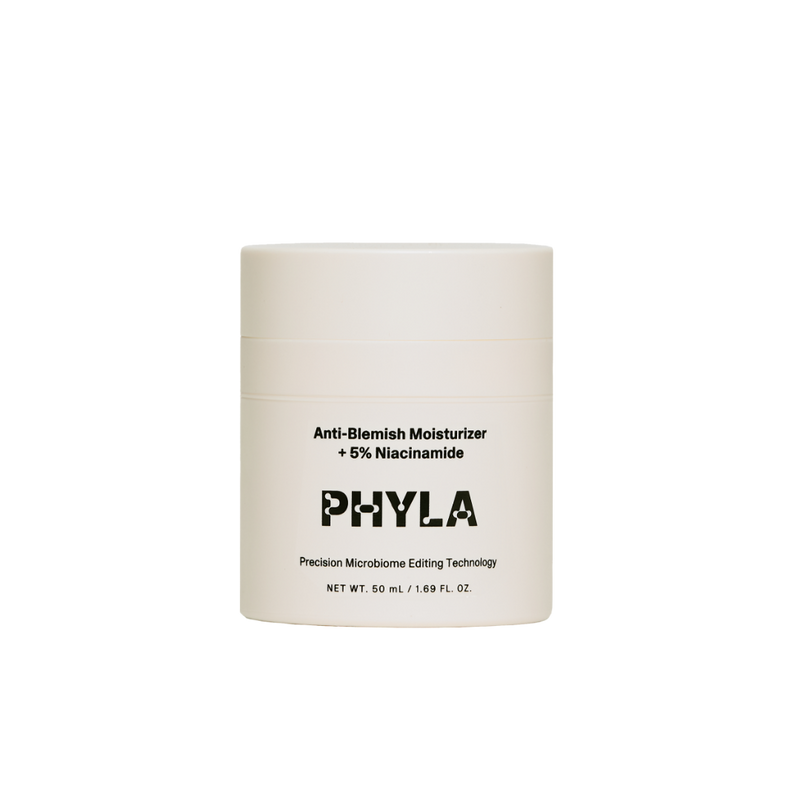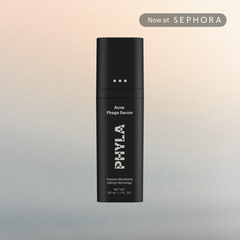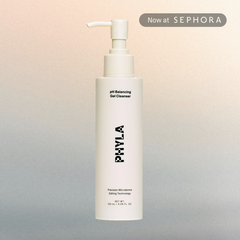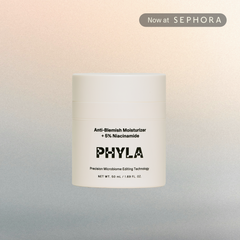Probiotics For Skin: Is It Worth It?
We all know probiotics are necessary for a healthy gut, but what about probiotics for skin? Read our latest article and find out if probiotics are worth it.

In the world of health and wellness, probiotics are biggies. We all know now they are necessary for a healthy gut, but what about your skin? Does swallowing bacteria really help your skin? Is it really worthwhile to apply topically? The short answer? Why yes, yes to both questions. Keep reading as we break down exactly why probiotics in all their forms are so very good for you and your skin!
What are Probiotics?
Probiotics are live microorganisms that are purposely introduced into the body for the benefits they provide. The short and sweet version is that probiotics are the good bacteria that are known to provide excellent health benefits when consumed. These good bacteria help your body in many ways, not the least of which is helping to fight off bad bacteria, as in the case of infections.
Just like your stomach, your skin also hosts a community of billions of microorganisms, commonly called the skin flora. This community of skin flora collectively is called the skin’s microbiome. It’s an invisible ecosystem on the skin that works day and night to keep your skin healthy and strong.
Dermatologist Dr Batul Patel says: “The microbiome is the family of microbes that include different types of bacteria, fungi, and viruses—Our skin is inhabited by over 100 distinct species of microorganisms, and it hosts about one million microorganisms per square centimetre.”
Your skin’s microbiome helps to regulate inflammation, while also working as a barrier against pathogens that may cause skin problems. Just like inside your gut, the good bacteria can help kill the bad, infection causing bacteria on your skin, which can significantly reduce the chances of an infection becoming serious.
Amazingly, to help support this skin microbiome, you can successfully get help from external sources, just as you do with supplementing to improve your gut health. Granted, in the world of skincare probiotics are a fairly new concept, but this microorganism-centered beauty tip is growing bigger by the day as people begin to see the benefits.
Continuous or repetitive inflammation, changes in skin type and pH levels, everyday diet and lifestyle factors, stress, and other triggers can cause an imbalance in your microbiome.
It’s been discovered that these imbalances and disruptions can result in frustrating skin conditions like eczema, rosacea, acne, as well as infections. The beauty of microbiome-focused skincare is that it can help you to bring the bacterial ecosystem of your skin back into balance, for healthier, more beautiful skin.
How Do Probiotics Work for the Skin?
Probiotics can be ingested as a supplement or applied to your skin topically. Since your gut health also affects the health of your skin and vice versa, orally taking probiotics can benefit your skin quite a bit.
Some research even suggests that consuming probiotic foods may decrease inflammation in your skin, improve the barrier function of your skin, and even help to heal skin issues like eczema.
This is largely because when your gut is healthy, there is a reduced chance of unhealthy toxic wastes being absorbed into your bloodstream to cause damage and block the absorption of essential nutrients. These toxins can not only inhibit the proper working of vitamins, minerals, and other nutrients you ingest, but they can also lead to inflammation in many organs, including your skin.
Of course, applying probiotic creams directly onto the skin can also work wonders and strengthen your skin’s microbiome, and in the world of beauty, is considered the most effective way to nourish and balance your skin.
What Are the Benefits of Skin Probiotics?
There are several benefits to using skin probiotics.
Improves Skin Conditions
Topically applied probiotics are good for all skin types, but they are exponentially better for sensitive and chronically inflamed skin. Probiotics are known to have a stabilizing effect on inflamed skin conditions such as acne, eczema, and rosacea.
Probiotics also prevent and reduce the risks of your immune system attacking other microorganisms on your skin, which in turn reduces the risks of flare-ups and triggering your skin’s sensitivity meter. Even better, consistent use of topical probiotics has been shown to help heal scarring and blemishes, revealing the fresh, smooth skin hidden just beneath.
Improves Skin Hydration
If your skin barrier is strong and healthy, it helps to ensure the minimum loss of water from your skin cells. Since probiotics are known to strengthen the barrier of your skin while supporting the good bacteria that boosts immunity, it makes sense that it helps to keep your skin hydrated for longer periods of time.
Delays Signs of Aging
Remember that topical probiotics help increase moisture retention in the skin. When your skin is properly hydrated and moisturized, it fights against all those visible signs of aging.
Lactic acid in the probiotics helps to minimize the appearance of wrinkles and fine lines, while also tightening pores. It even gently exfoliates the skin to remove dead cells and bring forth that radiant glow waiting just underneath, instead of leaving you looking dry and dull. Probiotics may also soothe sun damaged skin to prevent the formation of wrinkles and fine lines caused by sun exposure, as well as reduce the appearance of sunspots.
Keeps Your Skin Clear
There are many foods that increase the production of oil in your skin. This can result in clogged pores, breakouts, acne, and other skin conditions. Moreover, sensitive and inflammation-prone skin can show an intense reaction to these breakouts, resulting in even more flare-ups. It’s a vicious cycle.
Additionally, there have been studies that show the relationship between your gut, brain, and skin. When your brain is stressed out, it can alter the functions of the gastrointestinal tract, causing bad bacteria to build up.
This bad bacteria can lead to inflammation of the skin, leading to more breakouts, again, a vicious circle. Therefore probiotics, whether consumed orally or applied topically, can provide some much needed relief to your skin by alleviating inflammation and giving your skin the opportunity it needs to heal.
Strengthens Your Skin
Probiotics have been shown to reinforce the natural barrier of your skin, which strengthens its defense against bad bacteria and environmental factors like oxidative stress, free radical damage, and pollution.
Probiotics promote the natural production of antimicrobials and other chemical compounds that balance out the skin and reduce pH levels. This aids in protecting it against transient pathogens that could disrupt the normal functioning of the skin.
How to Find the Best Skin Probiotics
When you start looking for probiotics to incorporate into your skincare routine, or even into your supplementation regime, there are certain factors to consider. First of all, you only want to choose a probiotic product that contains at least two strands of probiotics. This is essential because you don’t know which good bacteria you may be lacking, and which microorganisms you may need to balance.
When choosing skincare products with probiotics, it’s important to stay away from anything with an ‘anti-bacterial’ or ‘anti-acne’ label. This is because these products have ingredients that directly attack all bacteria on the skin, both the good and the bad. When your skin is stripped of its natural bacterium, it’s made vulnerable.
Some probiotics that are proven to be beneficial for the skin include:
- Bacillus Coagulans—this particular bacteria helps to increase free radical scavengers. In other words, it fights free radicals which helps to delay the onset of skin aging.
- Streptococcus Thermophilus—this bug is known to increase the production of ceramides—a class of fatty acids present in the epidermis that helps prevent permeability in the skin—in people with sensitive skin, or with conditions like eczema that weaken the skin.
- Staphylococcus Hominis and Staphylococcus Epidermidis—these two bacteria help to suppress the growth of a bad bacteria that increases the symptoms of eczema and dry skin.
Other probiotics good for the skin, especially in treatment of acne include:
- Enterococcus fecalis
- Lactobacillus acidophilus
- Lactobacillus bulgaricus
- Lactobacillus casei
- Lactobacillus paracasei
- Lactobacillus plantarum
- Bifidobacterium bifidum
- Bifidobacterium lactis
- Streptococcus salivarius
Probiotic Best Practices to Keep in Mind
You should always remember that probiotics have a short shelf life. They are living organisms, which means they have a death date too. Avoid getting probiotics that are past their prime, that have been stored in sunlight, or that arrive in packaging that is loose.
It’s also an excellent idea to consult your dermatologist or doctor before starting any kind of probiotics, including topical skin products. Always better to be safe than sorry! You can also expect to try more than one product before finding the right fit.
Your skin’s microbiome is uniquely you and the products you use must be tailored to your skin’s needs. When you find the right one, you’ll be amazed at the many benefits you’ll see by using probiotics for the skin. And yes, it’s totally worth it!


